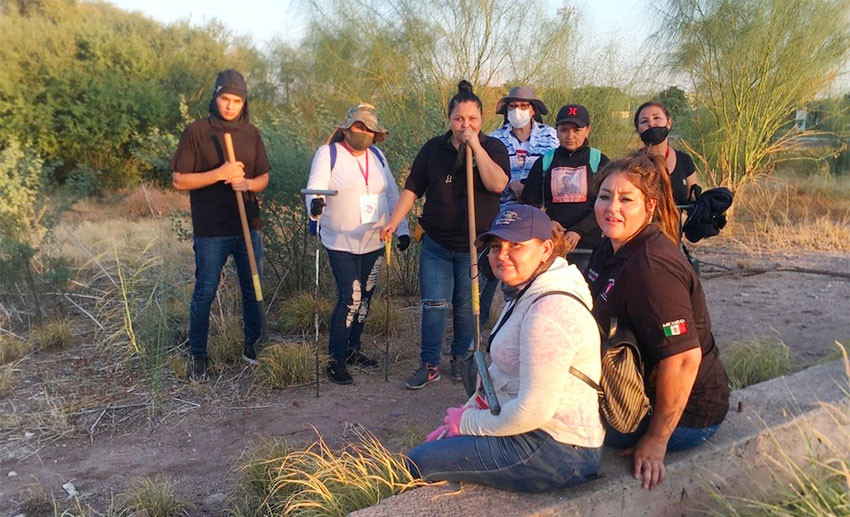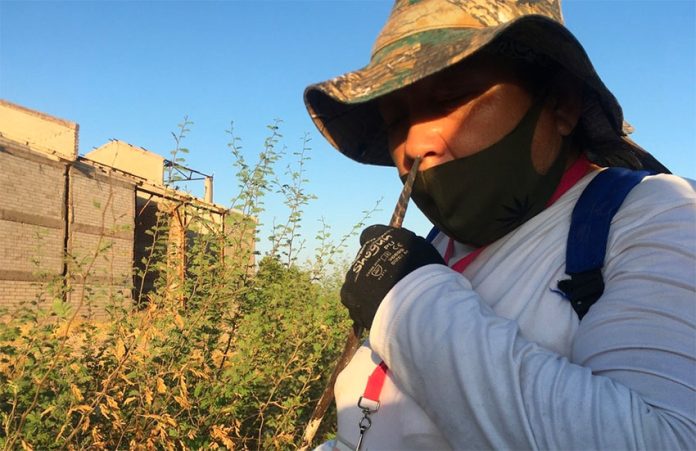Everything changes when you lose a child, and for Nora Lira one of the consequences of her daughter’s disappearance was an enhanced sense of smell, a useful skill when you are looking for decomposing bodies.
Tragically, it was this heightened sense that led her to her 17-year-old daughter Fernanda’s grave on October 2, two years to the day after she last saw her.
Lira was able to identify Fernanda’s clothing as well as a green bracelet she always wore on her right wrist. “Your mom has come for you, we’re leaving,” Lira wept as she cleared dirt from her daughter’s bones.
“I don’t want to put her in the ground anymore, she lasted for years in it. My daughter was not bad, she didn’t mess with anyone, and she’s come to end up here,” she sobbed.
Lira is the founder of Las Rastreadoras de Obregón (Searchers of Obregón), a brigade of 20 women — mothers, sisters, aunts and wives of the missing in Ciudad Obregón, Sonora, who have taken it upon themselves to actively search for their loved ones.

In the past two years they have found the remains of 50 missing people, including Fernanda.
“This year the reports have grown a lot, there are too many. It is a problem that you do not want to see. Women are disappearing, young people with a future ahead of them, and we have no idea why. They are people who were not doing bad things, who did nothing to anyone,” Lira says.
Lira formed the search brigade — it is one of dozens across the country — in February 2018, a few months after Fernanda disappeared. Gradually other women like Lira who felt abandoned by state and local authorities joined her.
Women like Blanca Hermosillo, who joined the group in April 2018 to find her son Tomás. He went missing after getting in a car with unknown people near his home.
That same month, the searchers located a property on the outskirts of the city where 38 bodies were found buried in clandestine graves. Four months later, the state prosecutor’s office notified Hermosillo that Tomás was among them.
Hermosillo refuses to believe that the remains were his, and continues searching, hoping to find her son in a better condition than the “bones they gave me,” she says.
For Hermosillo, too, the smell of decomposition is what leads her to bodies. “It is an unmistakable, unique and also indescribable smell,” she says.
The group has its searches down to a routine. They go out two to three times a week clad in gloves, hats and cloth masks. When they come across a potential burial site, they sink a rod into the dirt, then pull it out and smell it. “If it smells — we already know the smell — we start digging because there is a body,” says Josefina, whose daughter went missing a year ago.
Government officials say that since 2006, more than 4,000 clandestine graves have been found throughout Mexico. In just the past four years 143 have been found in Sonora, but the Obregón searchers, as well as similar groups in other Sonoran cities, say the number is much higher.
Between January and September of this year, 4,960 people have been reported missing in Mexico. In total, 77,146 people across the country have disappeared.
Source: Milenio (sp)
